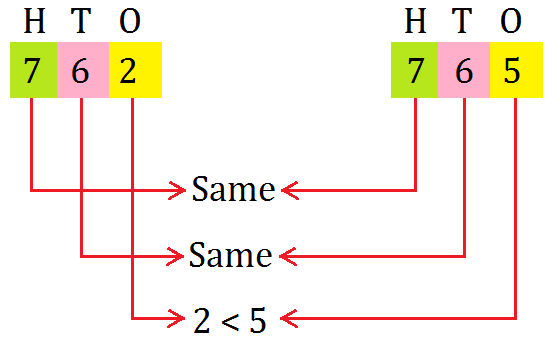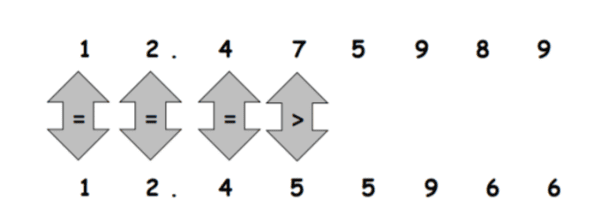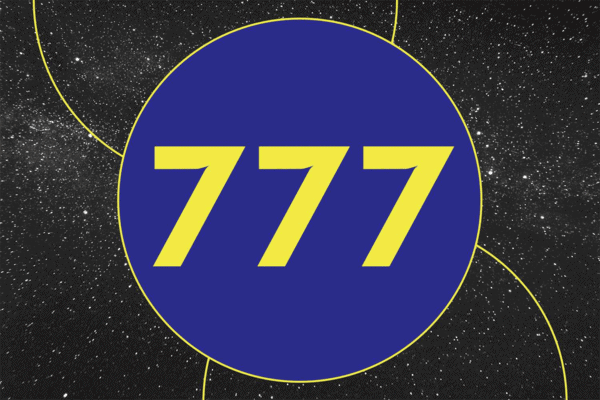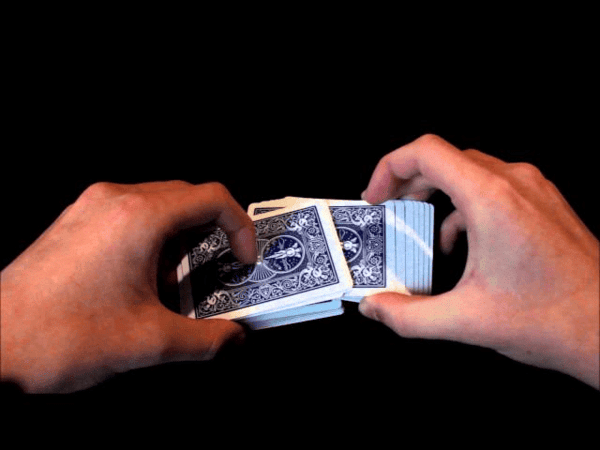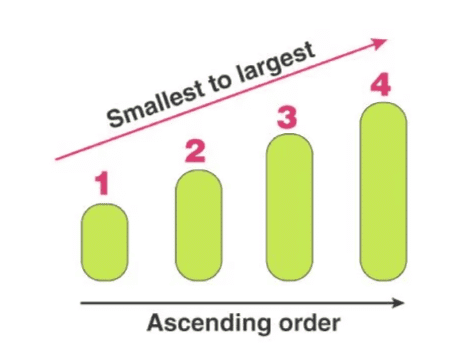|
When comparing two numbers with unequal digits, the number with ___ digits is greater. |
Card: 1 / 38 |
|
Fill in the blank: To compare 24 and 36, we see that ___ is larger because it has more tens and ones. |
Card: 3 / 38 |
|
What determines which of two equal-digit numbers is larger when their leftmost digits are the same? |
Card: 5 / 38 |
|
What is the term used to describe the arrangement of numbers from smallest to greatest? |
Card: 13 / 38 |
|
When arranging the digits 3, 0, 9, and 6 in descending order, what is the largest number that can be formed? |
Card: 15 / 38 |
|
Fill in the blank: To find the smallest number using the digits 3, 0, 6, and 9, we arrange them in ___ order without starting with 0. |
Card: 19 / 38 |
 Unlock all Flashcards with EduRev Infinity Plan Starting from @ ₹99 only
|
|
Riddle: I am a number that cannot start with zero, but I can be made from a set of digits. What am I? |
Card: 23 / 38 |
|
Fill in the blank: The place value of a digit in a number determines its ___ in the overall value of the number. |
Card: 27 / 38 |
|
Riddle: I am a three-digit number. If you swap my hundreds and units place, I become greater than myself. What number am I? |
Card: 29 / 38 |
|
Any three-digit number where the unit digit is greater than the hundred digit, such as 241. |
Card: 30 / 38 |
|
When expanding the number 5,46,851 in terms of place value, what is the value of the digit 4? |
Card: 31 / 38 |
|
Fill in the blank: The arrangement of digits significantly affects the number's ___. |
Card: 33 / 38 |
|
7 is in the lakh place, 3 in the ten thousand place, 2 in the thousand place, 4 in the hundred place, 8 in the ten place, and 9 in the unit place. |
Card: 36 / 38 |
|
What is the process of rounding numbers to make rough calculations easier called? |
Card: 37 / 38 |





